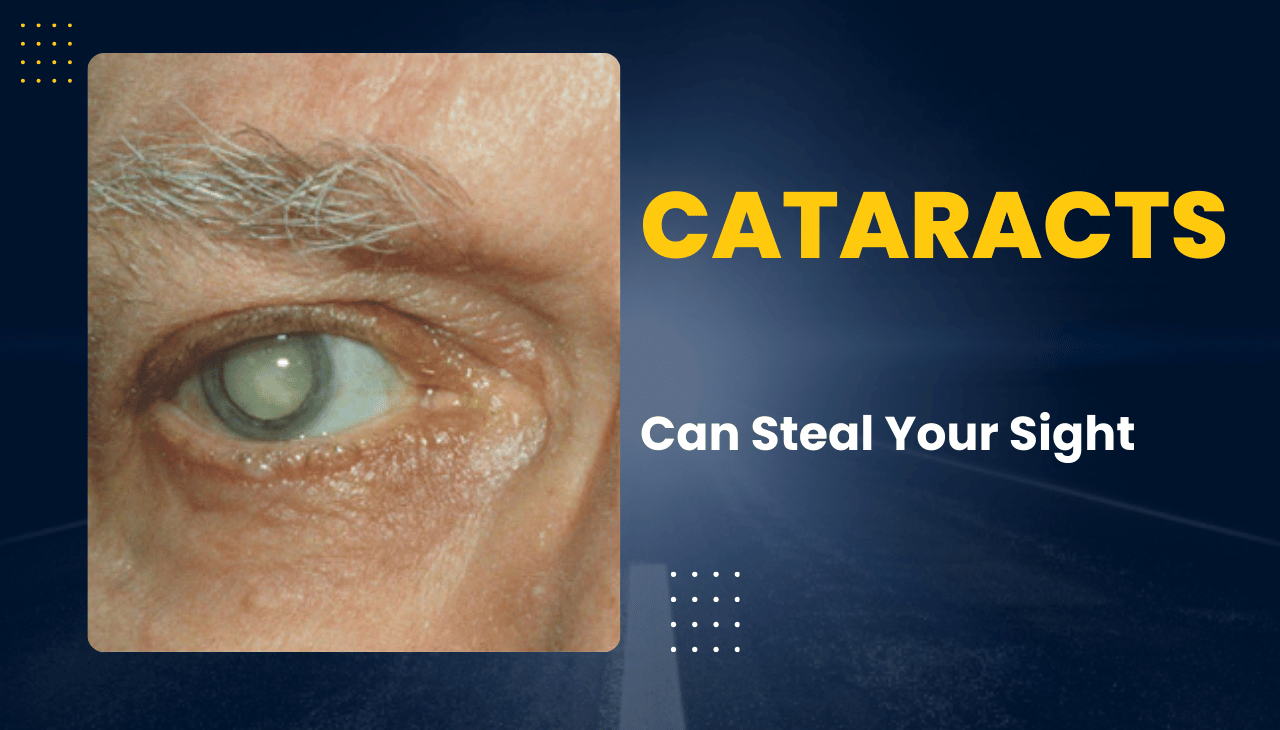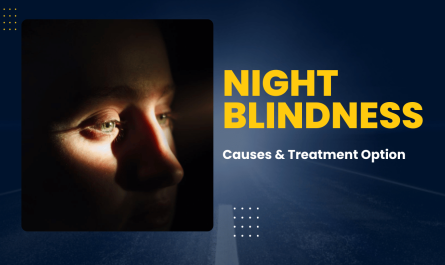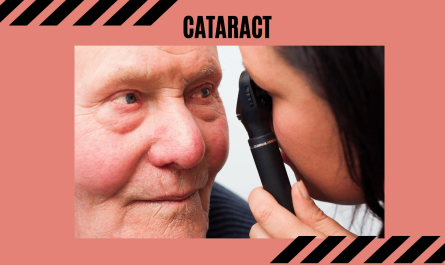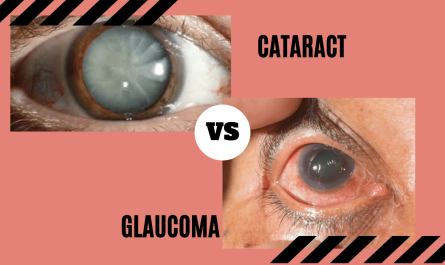Introduction
Cataracts are among the most common causes of vision loss worldwide, especially in older adults. While many people associate cataracts with blurry vision, they often wonder—can you actually go blind from cataracts? This is an important concern for millions, especially as we age. In this blog, we’ll explain what cataracts are, how they affect vision, the symptoms to watch for, and what treatment options are available. We’ll also offer expert insights and answer frequently asked questions to help you make informed decisions about your eye health.
What Are Cataracts?
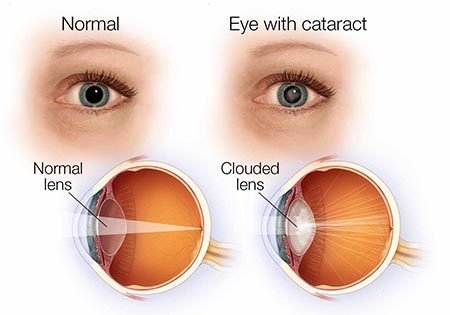
Cataracts occur when the natural lens of the eye becomes cloudy, leading to vision problems. The lens is normally clear and helps to focus light on the retina. Over time, proteins in the lens can clump together, forming a cloudy area known as a cataract. This cloudiness blocks light from passing clearly through the lens, which can distort or reduce vision.
There are different types :
- Nuclear Cataracts (center of the lens)
- Cortical Cataracts (edges of the lens)
- Posterior Subcapsular Cataracts (back of the lens)
- Congenital Cataracts (present at birth)
Cataracts can develop in one or both eyes, but they do not spread from one eye to the other.
What Causes Cataracts and How Do They Affect Vision?
Cataracts develop slowly and are often age-related. However, several factors contribute to their onset:
- Aging (most common cause)
- Diabetes
- Smoking and alcohol use
- Prolonged exposure to UV rays
- Previous eye surgery or injury
- Genetics or family history
- Certain medications like corticosteroids
As cataracts progress, they can lead to a range of symptoms:
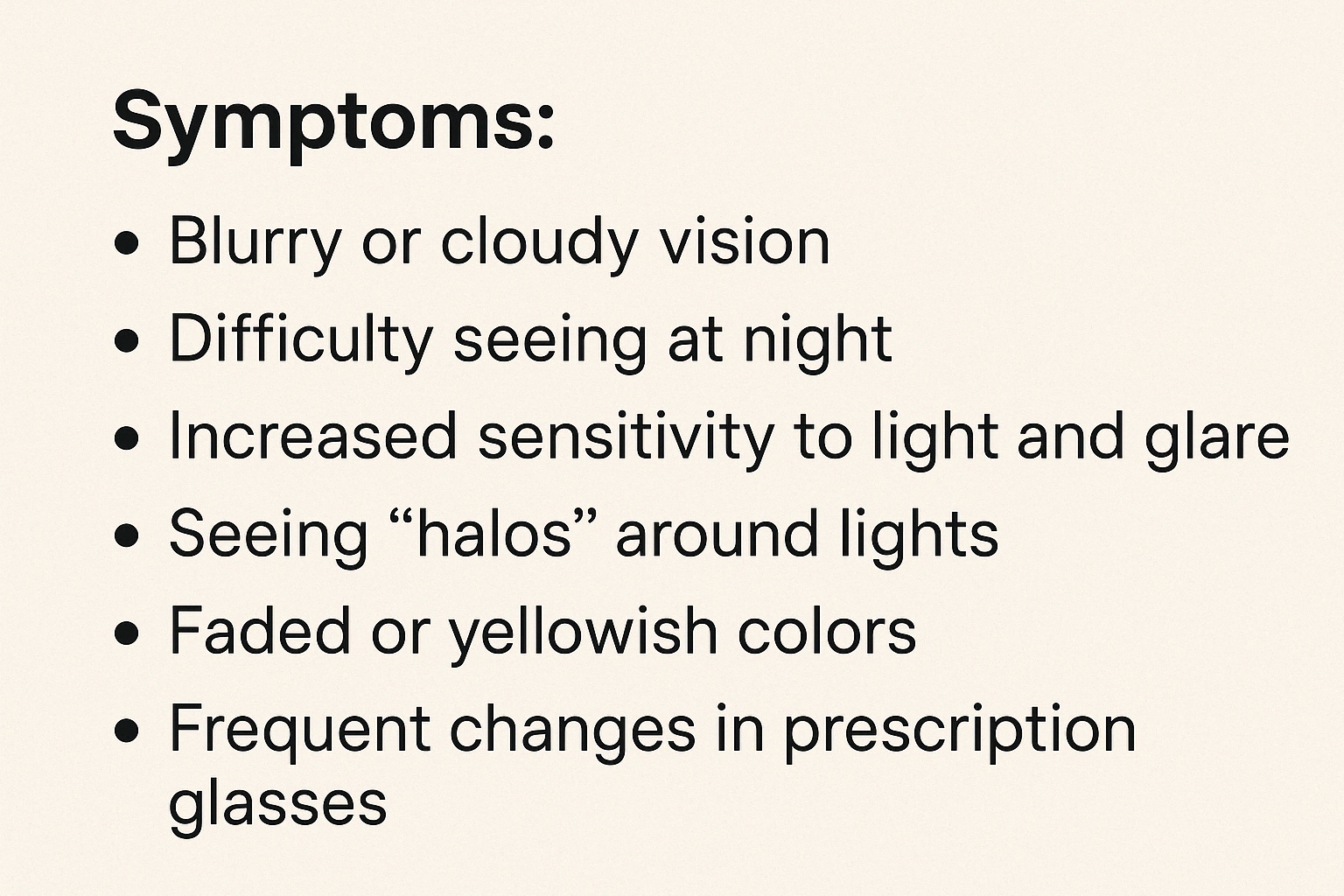
- Blurry or cloudy vision
- Difficulty seeing at night
- Increased sensitivity to light and glare
- Seeing “halos” around lights
- Faded or yellowish colors
- Frequent changes in prescription glasses
Left untreated, cataracts can cause significant vision loss. While cataracts themselves don’t cause permanent blindness, if neglected over time, they can lead to legal blindness—a level of vision impairment where normal daily tasks become extremely difficult.
Can Cataracts Really Lead to Vision Loss?
Yes, cataracts can cause severe vision impairment and even lead to functional blindness if left untreated for a long time. As the clouding worsens, it becomes increasingly difficult for light to reach the retina. Eventually, this can cause near-total loss of useful vision, particularly if both eyes are affected.
The good news is that this condition is highly treatable. Vision loss from cataracts is not permanent in most cases, and sight can often be fully restored with a simple surgical procedure.
How Are Cataracts Treated?
The only effective treatment for cataracts is surgical removal of the cloudy lens, which is replaced with a clear, artificial intraocular lens (IOL). This procedure is safe, quick, and performed under local anesthesia.
There are different types of cataract surgeries:
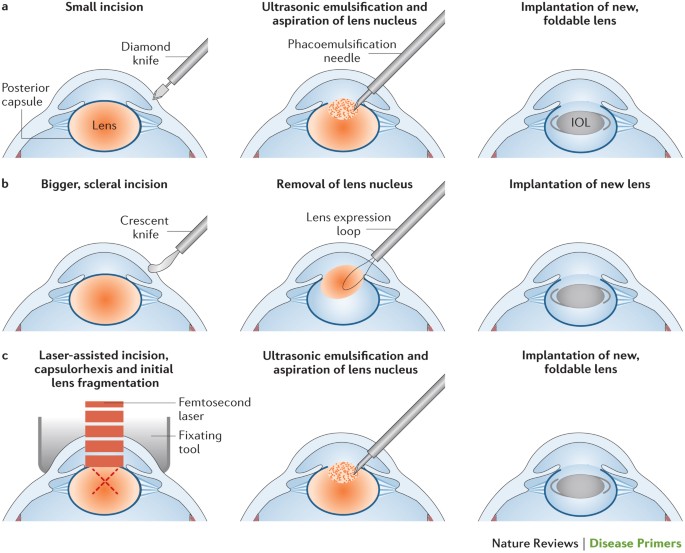
- Phacoemulsification (Phaco): Uses ultrasound waves to break up the lens
- SICS (Small Incision Cataract Surgery): A manual technique often used where Phaco isn’t feasible
- Femtosecond Laser-Assisted Cataract Surgery (FLACS): Advanced bladeless surgery for precision and faster healing
After surgery, most patients notice a dramatic improvement in their vision within a few days. Regular follow-ups and eye drops ensure proper healing.
Who Is at Risk of Losing Vision from Cataracts?
People over the age of 60, those with diabetes, individuals with high exposure to sunlight, or those with a history of eye injuries are more likely to develop cataracts. However, early diagnosis and timely surgery can prevent vision loss in almost all cases.
When Should You See an Eye Doctor?
You should consult an eye specialist if you notice:
- Sudden or gradual decline in vision
- Difficulty reading, driving, or watching television
- Increased glare sensitivity
- Frequent changes in glasses prescription
Early diagnosis allows for better management and can help prevent vision deterioration.
Consultation at Laxmi Eye Hospital
If you’re experiencing vision problems or suspect cataracts, Laxmi Eye Hospital is one of the most trusted names in eye care across Mumbai and Navi Mumbai. With over 30 years of excellence in the field, Laxmi Eye Hospital offers advanced diagnostic tools and cutting-edge treatments across Panvel, Kharghar, Kamothe, and Dombivli.
Their team of highly qualified ophthalmologists specializes in:
- Cataract Surgery (SICS and Phacoemulsification)
- Bladeless LASIK / Specs Removal (ICL, IPCL, Contoura Vision)
- Glaucoma Management
- Retina & Diabetic Eye Treatment
- Cornea and Pediatric Ophthalmology
To book a consultation, visit your nearest center:
- Dombivli: 1st Floor, Laxmi Eye Institute, SS Business Park, Gharda Circle
- Kharghar: Office 108-110, 1st Floor, Anant CHS, Sector 04
- Panvel: Mulla Hamid Rd, Old Panvel
- Kamothe: Shop 26/27, Pratik Gardens, Sector 34
📞 Call: +91-7303701800
🌐 Website: www.laxmieye.org
Frequently Asked Questions (FAQs)
Q1. Can cataracts cause total blindness?
Yes, if untreated, cataracts can cause functional blindness, but this is reversible with surgery.
Q2. At what age do cataracts usually develop?
They typically start developing after age 60, but early-onset cataracts can occur too.
Q3. Are cataracts painful?
No, cataracts are not painful. Symptoms are mostly visual, like blurriness or glare.
Q4. Is surgery the only treatment for cataracts?
Yes, surgery is the only effective and permanent treatment once vision is significantly affected.
Q5. How long is recovery after cataract surgery?
Most patients recover within 1–2 weeks, though complete healing may take a month.
Q6. Can cataracts come back after surgery?
The cataract itself doesn’t return, but a secondary clouding (PCO) may occur and can be treated with a laser procedure.
Q7. Can cataracts be prevented?
While aging is unavoidable, wearing UV-protection sunglasses, managing diabetes, and avoiding smoking may slow progression.
Q8. Is cataract surgery safe for elderly patients?
Yes, it’s one of the safest and most common procedures performed on older adults.
Conclusion
Cataracts can lead to significant vision loss if ignored, but the silver lining is that vision can almost always be restored through surgery. If you or a loved one are experiencing symptoms of cataracts, don’t delay seeking medical advice. Early detection and timely treatment are the keys to maintaining clear, healthy vision. Trust expert centers like Laxmi Eye Hospital for world-class eye care that’s both affordable and accessible.

